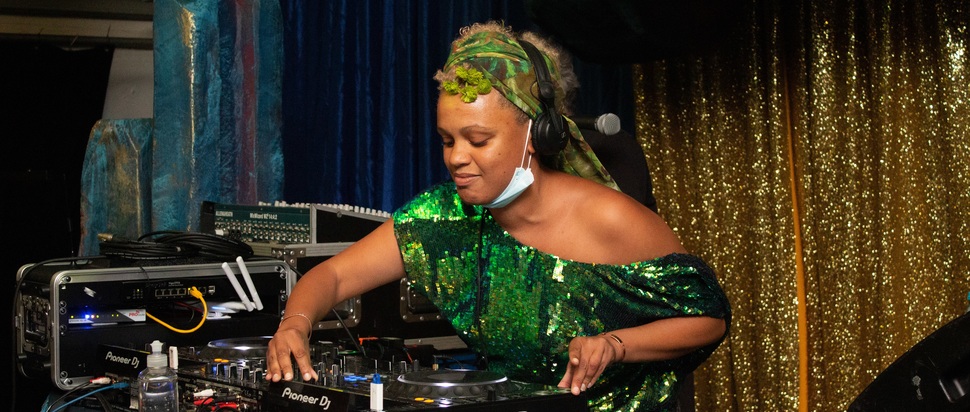Sustain the Change: Keychange in 2022
Five years on from its inception, we reflect on the Keychange pledge to push for gender parity in our festival fields with some of the forethinkers breaking down the boys’ club
In midsummer of 2015, social media was awash with blanked-out festival posters. Male acts were slashed from the weekend listings to prove how few women were being programmed to major festival stages. But this disparity doesn’t just exist within the festival fields. In 2018 The New York Times reported: "Of the 899 individuals who have been nominated for the last six Grammy ceremonies, 90.7 percent were men and 9.3 percent were women," while in the same year PRS for Music revealed that only 17% of their songwriter memberships identified as female.
Five years ago, against a backdrop of raging timelines, the Keychange initiative launched hellbent on addressing this imbalance with a two-pronged approach. First, its talent development programme. Secondly, a pledge with a goal to reach 50/50 women and gender minorities representation by 2022, as Project Manager Francine Gorman recalls. “The pledge was developed as a response to festivals looking for ways to develop their lineups differently.”
The team quickly realised that inequality isn’t merely stage deep though. Beginning their work across the live music and performing arts sector, they only found more rotten roots. “For a festival to book an artist, there's so much infrastructure that leads to that point from radio (how do you get on radio?) to labels (where are labels finding music?),” explains Gorman. And while the Keychange initiative works to support women and gender minorities, there’s also the issue of diversity. “It's a conversation that we want to have with every person, pointing them to other resources where they can start learning in those areas as well.”
Nurturing an inclusive space for a broad range of artists sits at the heart of Jupiter Rising. Launched in 2019, the indie arts festival formed with the “urgent need to address the imbalance” as Head of Exhibitions and Learning Programmes at Jupiter Artland (the festival's home), Claire Feeley shares. “We push for inclusivity and celebrate artists, specifically queer-folk and people of colour who have fought to see themselves represented.” Last year’s event boasted DJ sets from Gemma Cairney, Junglehussi and OH141’s Sarra Wild alongside live sets from Kapil Seshasayee, Sacred Paws and Lady Neptune, with installations from multidisciplinary artist Furmaan Ahmed. This year sees Alloysius Massaquoi (Young Fathers) and Tamara Schlesinger, of all-female and non-binary songwriting collective Hen Hoose, on curatorial duties.
But it’s not only Scotland where we’re finally seeing the ripples of change making waves. Last year Keychange received its 500th signatory to the pledge from industry juggernaut EBU Music (the European Broadcasting Union's music department). It’s a milestone that Gorman believes is significant to the project’s future: “To have an umbrella organisation like that on board is vital. They're in touch with every national broadcaster throughout Europe!” Elsewhere in Europe, we’re already seeing shifts. Partner festivals like Way Out West in Sweden continue to deliver a gender-balanced lineup with homegrown exports First Aid Kit topping the bill in 2022. For Head of Communications Filip Hiltmann, signing the pledge was a no-brainer. “50/50 gender balance should not be communicated as a feather in your cap, but rather as the new status quo. Because if you think about it, why wouldn’t it be?”
Many will remember the backlash after TRNSMT boss Geoff Ellis stated "we need to get more females picking up guitars" to address the imbalance in the industry. But for Feeley, she believes it’s with these underrepresented genders where the spark of innovation is burning brightest. “The most exciting work being created right now is coming from non-binary, gender non-conforming artists. What Jupiter Rising has done is create a home for this energy.” Hiltmann agrees: “We’ve never had any trouble with finding enough female acts for our stages. Actually, our problems are reversed – there are too many that we can’t fit on our bill!”
There’s also no data to suggest that women sell fewer tickets than their male counterparts. In fact, last year saw solo female artists leading the Billboard Top 200 for the first time in over a decade. It’s a falsehood that Gorman believes can lead to toxic behaviour. “When festivals spread sentences like that around, it’s devaluing the place of women in the music industry and that's not acceptable.” As Feeley posits, this attitude breeds future iterations of exactly the same thing. No questions asked. “I’ve seen first-hand the pressure promoters are under to book white male artists as stats suggest they give better box-office returns. The problem is when this becomes a self-fulfilling prophecy.”
Frustratingly, questioning is exactly what so many organisations need to be doing right now as we begin to navigate out of a pandemic. There's no doubt that the live music industry has been hit hard by two years of global flux. But COVID has also provided a stop-gap to reflect on the infrastructures our music festivals have long been built on. An opportunity to slowly dismantle the long-reigning boys’ club. As Gorman attests: “We want to go into this new era of music festivals with the lineups that represent who we are and who's attending. There is no better time to be implementing change than now.”
To find out more about Keychange’s longterm goals or to sign the pledge, visit keychange.eu
Way Out West takes place in Gothenburg, Sweden, 11-13 Aug; Jupiter Rising takes place at Jupiter Artland, Wilkieston, Edinburgh, 26-28 Aug
